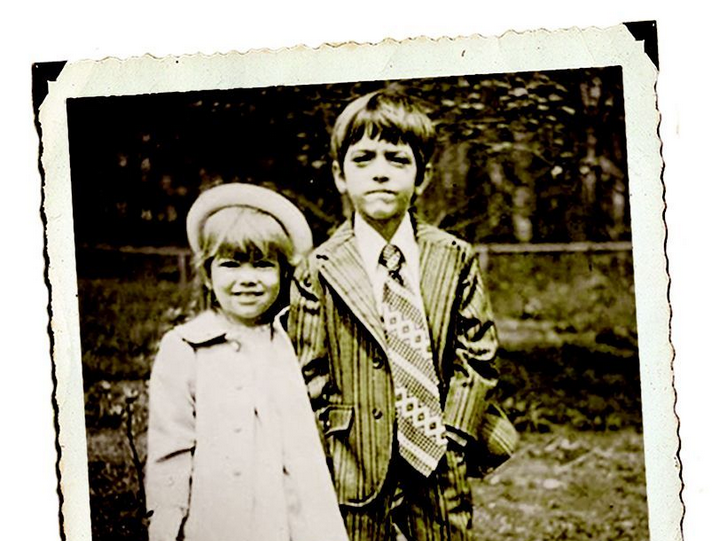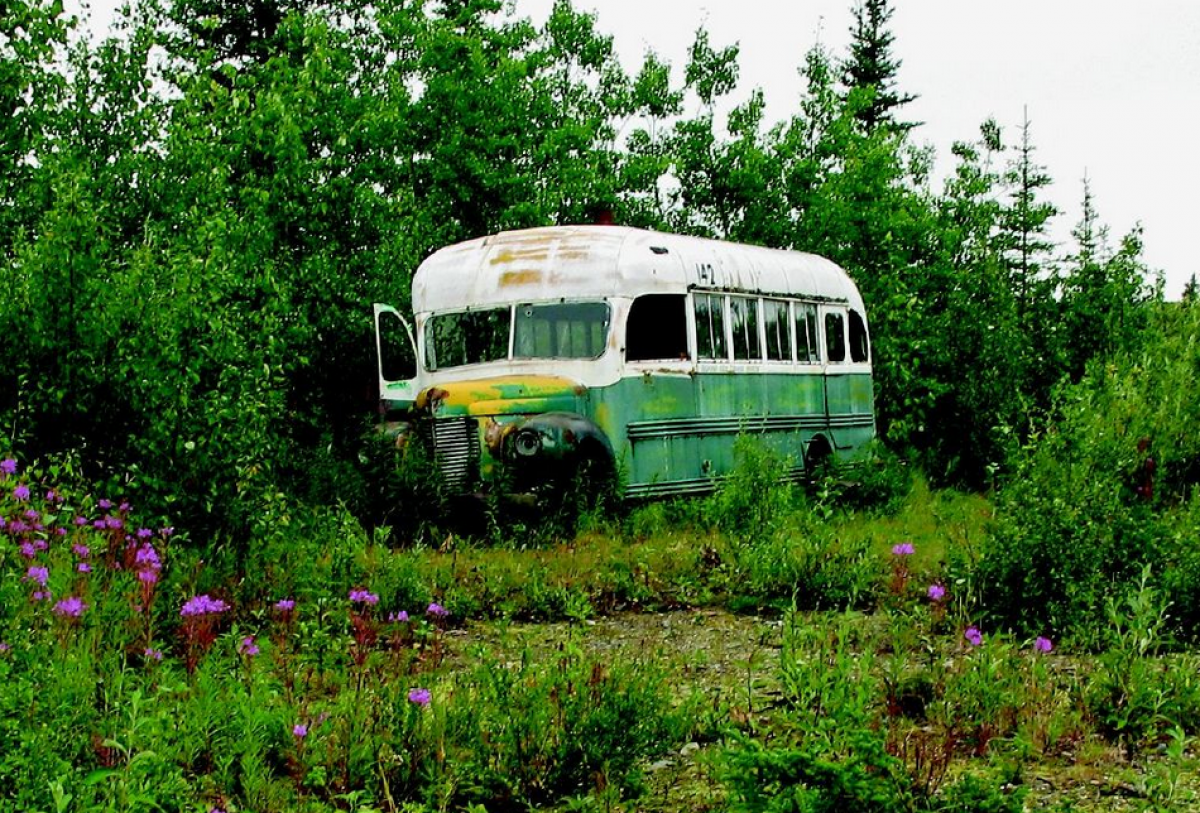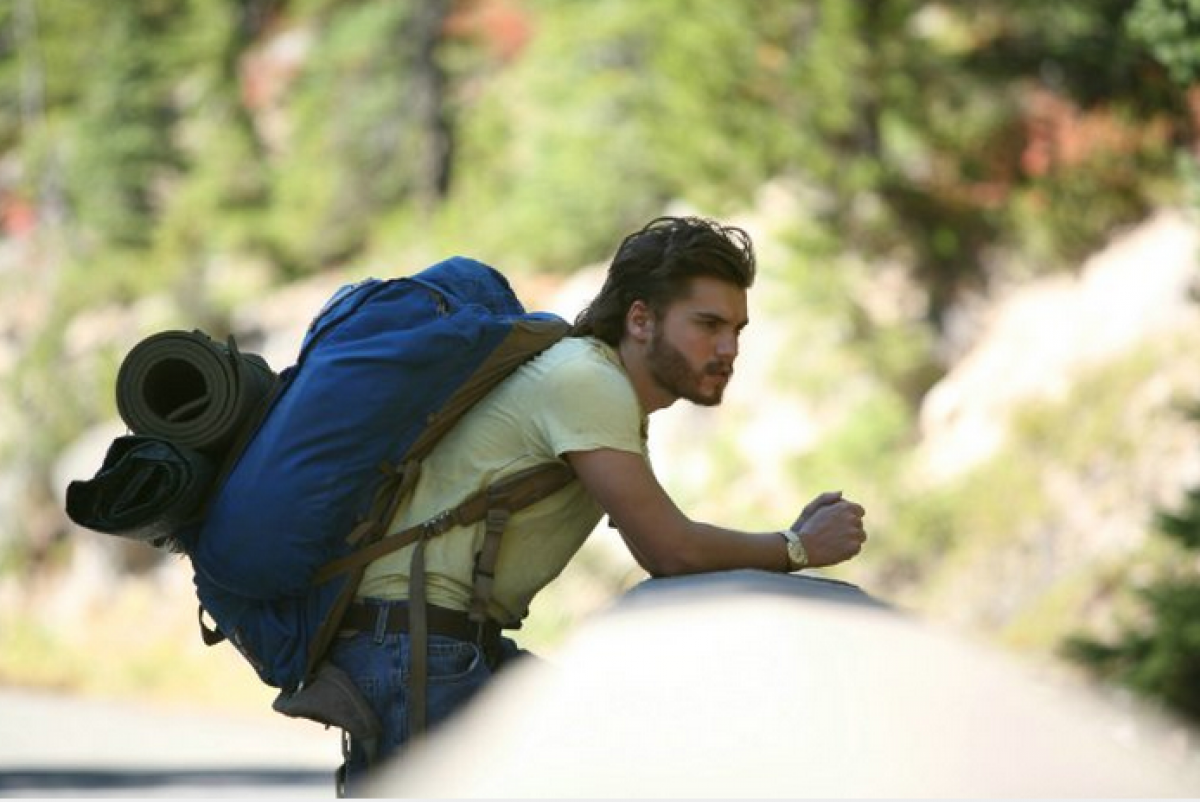
Why did Christopher McCandless die?
The question still puzzles and haunts, even now, nearly two decades after Jon Krakauer detailed the Alaskan explorer's doomed journey in Into the Wild. But there's a slightly different one at the center of The Wild Truth, the new memoir by the late adventurer's younger sister, Carine McCandless. What drove McCandless to up and leave his comfortable, upper-middle-class existence, abandoning his family for remote wilderness, in the first place?
The answer, McCandless suggests, has much to do with events that took place years before her brother's 1990 severing of ties and 1992 death. The Wild Truth chronicles a childhood marked by domestic violence at the hands of an abusive father and an enabling mother, and by doing so, it offers a poignant look at Christopher McCandless's life and death from the person who knew and understood him the most. The author kept these details private for decades—even as Into the Wild was turned into a major 2007 film—but "I found my voice through this process," McCandless told Newsweek. "I really want this book to help other people find their voice."
This interview has been lightly condensed for clarity and length.
It's been more than 20 years since Chris's death. Why now? Why is now the right time to make this whole story public?
Throughout those years, I've come to understand how important it is that people have Chris's entire story. By sharing my story, I'm filling in the blanks of his—things I've learned from Chris and things I've applied to my life. But I hear from people all around the world, and I've worked with students all across the country, where Into the Wild is required reading. And I see the difference that it makes. I've been fortunate to witness such overwhelming reactions from countless people I've been able to offer a new perspective to. Those experiences made me appreciate that I have something important to share. I realized it was time to share that with as many people as possible.
Another huge reason that now was the right time is I'm a mom. It didn't change it as far as what the facts are and the experiences. But it changed my level of acceptance and forgiveness. Because I can't imagine not doing everything possible to protect my children. The media and people will automatically gravitate to the shocking revelations about domestic violence that was present in our household. I understand that. I can appreciate why that is important. I understand how people suffer in silence that suffer from domestic violence. Obviously it took me 20 years to write this book, and I get why they hold it in. I found my voice through this process. I really want this book to help other people find their voice.
My mother used to speak to me on a daily basis about how she wanted to help battered women and she wanted to help children and she wanted to help people that were in the same situation that we were in. And she wasn't able, unfortunately, to be strong enough to find that courage and to be that voice for others and to get herself and her children out of that situation. In doing so, she went from being my father's primary target to his accomplice. Chris's story is an unbelievably powerful example of the devastating effects that domestic violence can have on children and on families. I think it's a lesson that needs to be out there.

It's a timely issue as well these days.
Obviously people are giving attention to this as well because of how much the issues of domestic violence are on social media, from the Ray Rice incident and so many different things. This book was completed before this ever happened. But the timing of that just lends itself as evidence [of] how prevalent this is and how much it stays behind closed doors and how important it is to open those doors. So whereas I'm sure my mom—I don't want to speak for her because I don't think that's fair. But I'm strong enough to be that voice for her. She's an important part of that lesson. And I have no desire to villainize my parents at all. They are human. They make mistakes. I certainly have made mistakes. I talk to students all the time about the importance of accepting your mistakes, accepting responsibility for them, not placing blame for any consequences from poor choices you make. That was done to us as children. You don't know any better. You understand when you grow up that it's not your fault when you're in the situation of a dysfunctional and violent household.
With regards to the timing, I've spent 20 years waiting for two particular people to learn these lessons that I believe come from Chris's life and death.
You mean your parents?
Yeah. My parents did a lot of things right. We certainly did not have the toughest childhood out there. I wouldn't say we had a safe home, but we had a roof over our head and a nice home to live in. And we absolutely appreciated and understood that. As a parent, I understand now that that is not always easy to provide. I respect that and appreciate that about my parents. But it does not negate the truth of the negative things and the devastating things that happened.
I didn't write this book in defense of Chris. But I think it's very important for people to best learn from him, that they have the facts and they understand just how much Chris was hurting when he left. And have a better understanding and appreciation of why he felt like he needed to do it the way he did. Chris was young and male—and I make no excuses for the risks he took and the mistakes he made that put himself in that position. But Chris accepted responsibility for his mistakes when he was dying. He loved life more than anyone I've ever known. And Chris did not sit there and lay blame on [parents] Walt and Billie for his death. I hold them accountable for his disappearance. But I certainly don't blame them for his death.
At first I assumed your parents were no longer alive and that was why you felt comfortable writing the book. But that's not the case. Have you been in touch with them during this process?
All I can tell you is that I've made sure they received an advance copy of the book because I wanted them to have the opportunity to respond to it and not be bombarded by the media. As much as I hope that this book might provoke some healing within them and some honesty about things, I don't expect that to happen. I don't expect a reconciliation from this.
What I expect is denial.
So they're denying your account?
Oh, sure. This in no way surprises me. It doesn't anger me. They never did understand their son, nor the damage they were doing to him or to any of us. I believe this book is going to help a lot of people, and I believe it will be powerful in its message. It could be 100 times more powerful if my parents had written it and written it honestly. If they had the ability to do this, about what happened and what they learned from that. They certainly deserve empathy for losing their son. And they certainly deserve the respect of humans that make mistakes.
I felt like I was doing a disservice not just to Chris and his memory but a disservice to all of the people who seek inspiration from Chris. And honestly? I was doing a disservice to my parents. You can't write a book with the word Truth in the title and not make sure it's accurate. I had to do a lot of research and a lot of interviews and a lot of digging when I was writing about things that happened before I was born or when I was too young to recall. I had to be very careful about that.
When did you begin work on the book?
Three years ago. It's something I'd been journaling about for years and years and years. But I decided that I would try to turn this into a book three years ago.
I think a lot of people will assume [that Walt and Billie are deceased]. It would be a lot easier then, wouldn't it? I know that I could have waited a certain number of years. That just seems so sinister and awful. If the time was right within me and for all the right reasons that I feel it was right to do this, time should not be a factor with that. It should be, once you know it's right and once you know it should be done, you should quite frankly have the balls to do it and not have any factors come into play. It seems like sort of a cop-out to me to only come out with this information that's already so overdue, to wait until I couldn't be lashed back at.

Why do you think Chris's story has resonated so much with people over the years?
I believe people identify with Chris because there's something within him that he did that people want to do. It doesn't have to be going out into the wilderness. It doesn't have to be taking great risks. And please, acknowledge: Chris made some mistakes. He took too great of risks. But people do that all the time, they push themselves to the edge. And extremists like that seem to feel more alive that way.
I think people identify with [Chris's] discipline. Maybe it's not something they identify with, but something they strive for. Chris made decisions and then he followed through on them. Didn't matter how difficult they were, didn't matter how far out of his comfort zone they took him. A lot of people tell me they left a job they hated. I've heard from so many people. It has nothing to do with them wanting to go on a wilderness adventure. It's, you know what? I watched the movie or read Into the Wild and I decided, I don't like what I'm doing every day! And I'm going to change it! And they have! I still get letters from these people years later.
Sometimes it's people who had a goal to run a marathon. And they lost 100 pounds and ran a marathon and send me pictures like, "Look at what I did and your brother did this for me!" I always say to them, "Take your own credit where it's due." Chris may have been the spark that ignited that fire in you. But you made that decision for yourself. Chris cannot do these things for people. Chris can inspire people to do these things for themselves. And he does it every day.
Do you think Chris would have wanted to be this iconic figure that he has become?
I think Chris would not understand what all the fuss is about. Chris did not see himself as a remarkable person. He knew he wasn't invincible, because he knew he was taking risks. But he was very confident and believed he could get himself out of any situation. And perhaps overconfident, as many young men are. And young women, too, but especially young men.
I do believe the attention would make him uncomfortable. But I believe just as much that he would be proud of the things people are learning from him and the positive changes they were making in their life because of him. And I'm very proud of the work I did in this book because if it helps one woman leave an abusive relationship, if it helps her get her kids out of an abusive relationship, if it helps some young woman recognize this in someone that she's dating and not continue that relationship so she doesn't end up having children in an abusive household.... If it helps one person, and I know that's cliché, but true. And I think Chris would be proud of that.
Are you uncomfortable at all with the way some people glorify Chris's actions?
It depends on what they're glorifying. I think it's important to balance Chris's mistakes along with his successes. I think it's important to have that balance. Because Chris was also human. Just as I say people cannot learn from my parents if they're villainized, which was certainly not my intent as I wrote my book. Just as people can't learn from villains, they can't learn from mythical figures. They can be inspired, but they can't necessarily learn from them.
Uncommon Knowledge
Newsweek is committed to challenging conventional wisdom and finding connections in the search for common ground.
Newsweek is committed to challenging conventional wisdom and finding connections in the search for common ground.
About the writer
Zach Schonfeld is a senior writer for Newsweek, where he covers culture for the print magazine. Previously, he was an ... Read more
To read how Newsweek uses AI as a newsroom tool, Click here.








